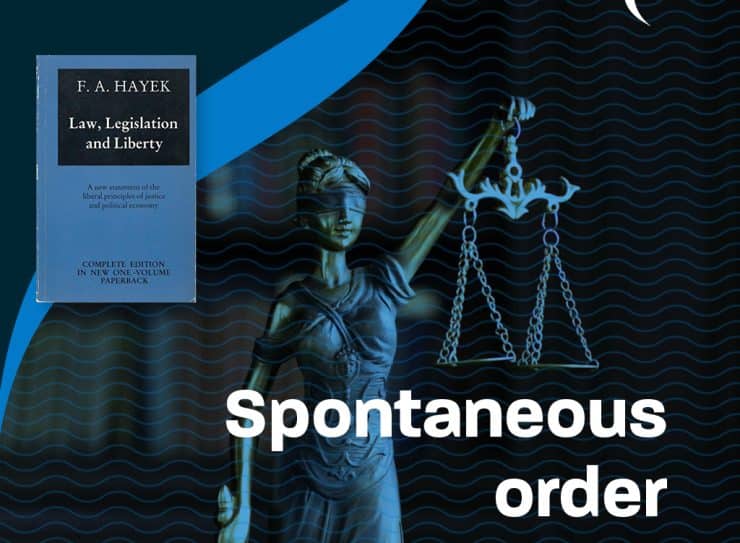Liberal Read No.28: Spontaneous Order
BOOK REVIEW – Adam Mazik
“Spontaneous Order” by Friedrich August von Hayek, 1978.

BOOK REVIEW – Adam Mazik
“Spontaneous Order” by Friedrich August von Hayek, 1978.

When thinking of “the law,” the average person in continental Europe thinks of codexes and books. The criminal code, the civil code, the Bürgerliches Gesetzbuch (BGB, or German Civil Code), the Code Civil, and so on are collections of legal rules that seem to be created by parliaments and governments in a top-down, rather than bottom-up, manner. The legal order the way we understand it in the twenty-first century and the way it is taught at universities thus appears to be an order that someone has created and designed.
Friedrich August von Hayek provides an alternative view on the issue. In “Rules and Order,” the first part of Hayek’s Law, Legislation and Liberty, the Austrian thinker claims that law does not have to be the result of deliberate action and design. Contrary to the beliefs of legal positivists, he claims that for most of human history, the law has been the result of a spontaneous order similar to the market.
He makes parallels with the self-regulating tendencies of markets and economy best expressed by the term “spontaneous order.” What does he mean by that, however? How does—or did—this actually work?